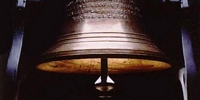Because you have speed, you may arrive at your intended destination quickly; but while you were at it, were you able to observe the things you may have missed while speeding along the fast lane? Like driving, moving fast does will not afford you the opportunity to see and enjoy the view. This also can be said about learning.
You can acquire a lot of knowledge through reading. Simply finding a quiet area where you are comfortable, you can read a book of your choice which can open a new world for you. Reading allows people to tap into the minds of great people.
How often you read will determine how much you know and in the hope of reading many books, some have attempted fast track reading. This is so, because it is believed that the faster one can read, the more they will cover.
This method, "fast track reading" may involve reading by phrases and concepts, instead of word for word. Fast track reading may enable you to go through more pages quickly. However, one drawback of this method of learning is you tend to remember only a very small portion of the main idea. This increases the possibility of you missing the most important details in the book.
However there is a solution to this problem, but only a few people are aware of this seldom-talked about technique in fast learning. This technique is based on the principle that the mind thinks in pictures.
You can accelerate learning if you can "see" the whole idea of the book. By seeing live pictures of the ideas and thoughts of the writer makes reading experiential and unforgettable. However if you don't see anything as you read, you learn nothing and fast track reading will be useless.
This technique is called visualization and it is vital to quick learning. Visualization in reading is like putting together a jigsaw puzzle where the pieces are put together to form the whole picture. It the whole thing not only appears, but it actually comes alive before you all happening in the mind.
Simply going through the motion of fast reading can give you a blur picture of the subject matter. Fast reading without the aid of pictures often informs but very seldom impresses.
First impressions last while information always changes with time. People tend to forget past information in favor of new ones. Impressions change may change you, and these are often stored permanently in the mind.
If you want learning to be effective, try pausing briefly in between reading to visualize and reflect. Effective learning is not about how fast one can finish reading a book, but how effectively one can comprehend the ideas brought forth by the writer.
You can have lasting impressions with the aid of visual pictures. So go after ideas and how it will enrich people's existence. Covet lasting impressions and insights that will mold you into a better individual.



